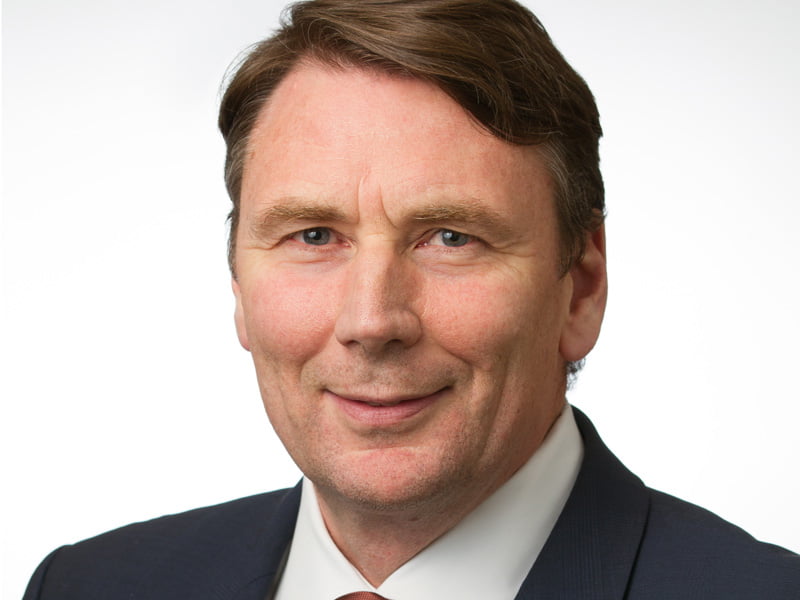Australia is facing a skills shortage in the key field of data analytics, amid concerns from incoming CSIRO chief David Thodey that the nation’s education system does not make STEM (science, technology engineering and mathematics) courses attractive enough for students.
The former Telstra CEO has also taken a first run at identifying key technology and innovation areas where he believes Australia has a natural advantage.
In the first part of his interview with InnovationAus.com, Mr Thodey called for a national blueprint for technology and innovation, offering broad views on the sector. This time he is drawn on specifics.

“There is so much room here, we don’t have to be good at everything. We need to be seen to be leaders at mining technology, advanced manufacturing, agriculture as a big part of what we are good at, but we need to [be] even more high-tech. And then we have got astronomy, and we have got marine [sciences and technology],” Mr Thodey said.
“In Victoria, we have got the pharmaceutical and biotech area [as areas of excellence]. There is no lack of opportunity when we are wondering what we can be good at – it’s all sitting under our noses really.”
One example of genuine world expertise he is focused on in the long-term astronomy and the ‘Square Kilometre Array’ project that is due to be built in 2018 and begin to collect data from 2020 in Australia and South Africa.
“The square kilometre array, it’s thousands of telescopes out in the desert and they are collecting information … it’s all data analytics,” Mr Thodey said. “They will be able to look at the sky and the Universe and go back millions of years. That’s really exciting.”
The idea is that the radio telescopes will operate a wide range of frequencies and its size will make it 50 times more sensitive than any other radio instrument.
The other example he cited is CSIRO’s marine biology research vessel used for only half of the year and shared with the Japanese, Chinese and New Zealand and other nations. The vessel is responsible for carrying out research on the barrier reef, and measuring changing water temperatures, amongst other projects.
Perhaps realising he may have stepped into the roiling political waters of climate change, Mr Thodey pulls back when asked if he is firm believer in man-made climate change and is suddenly diplomatic.
“What I believe in is that we should manage carbon emissions whether it’s man made or not,” he said. “The truth is we have to manage the environment; carbon emissions as well,” he added. “We need to get on and find good environmental solutions and manage carbon emissions.”
At the centre of many of these projects, Mr Thodey said, is the fast emerging key areas of data analytics, taking huge amounts of data generated and using intelligent applications to analyse large data sets for granular insights into any number of things.
“We are doing better research because we have better data analytics,” he said. “We are doing things better, and doing things faster with Big Data – so even research has changed fundamentally from what it used to be.”
But he warns that Australia is “running into a real shortage of skills” in this area, saying that it reminded him of his early days in IT (Mr Thodey worked for 22 years at IBM before joining Telstra in 2001 and stepping up as CEO in 2009).
“That (IT) was the industry to go after, now its analytics and artificial intelligence. Everything is speeding up, and that’s why as a nation we really have to be investing in this area,” he said
Education, Mr Thodey said, is fundamental. “We have to make this stuff more interesting, because traditionally we have treated as being boring, ”he said.
And from CSIRO, and a broader Australian research perspective, Mr Thodey said existing personal relationships needed to be better extended to an institutional level.
Finally, he said that despite recent funding cuts that have seen disruption amongst the staff at CSIRO, things are now more settled.
“Funding has now been set for three years, and there is some upside,” he believes. “I accept that like any part of the community we need to drive productivity as well, so we will need to do more with the same amount of money.
“We also need to be held accountable in our own way, and while a certain amount of scientific research is a voyage of discovery, outcomes are important as well.
He noted the base level of funding from government is set and then “you have industry funding, which I think is where the upside is. You really have to focus on your commercialisation.”
Mr Thodey said it is important to “look at what you have got, look at startups, and see what you can take through to an operational business.”
Do you know more? Contact James Riley via Email.

